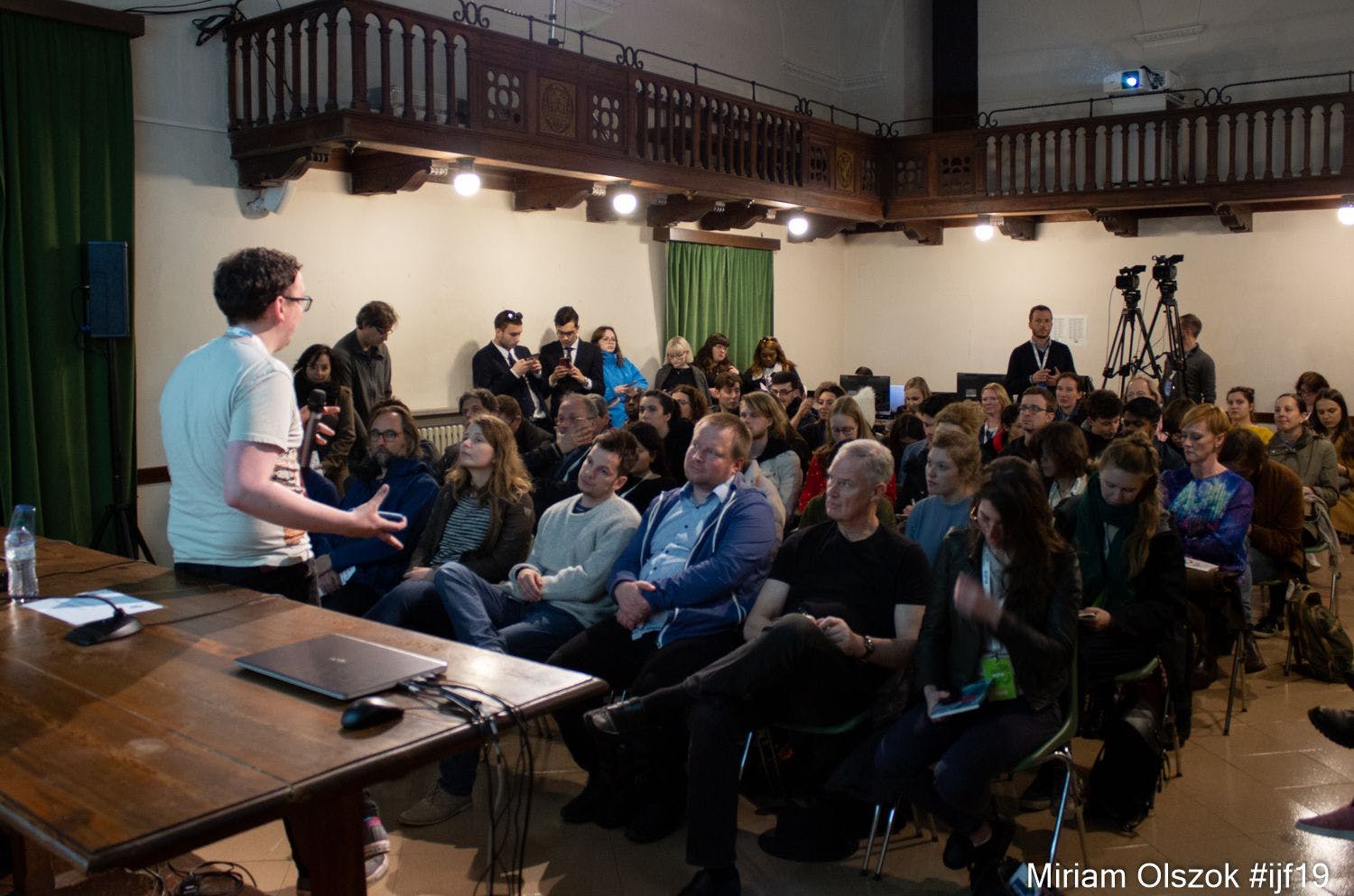Afraid of Misinformation? Don’t Be!
,We’re back from the International Journalism Festival in Perugia – and it was a blast! With so many great people there to meet in such lovely surroundings how could it not be?
But the festival does have a downside: Too many good sessions running in parallel. Good thing though that they are now all available as recordings online, so you can watch what you’ve missed.
If you don’t want to spend all day going through the program, and verification is one of your main topics, maybe these recommendations are helpful to you.
From "Deepfakes" to Verification Skills–here are our six recommendations
Do you want to hear a good talk about the current state of "fake news" and why we don't need to worry about so-called "deepfakes" (yet)? Then listen to James Ball's session "Beyond fake news: what's next for tackling online misinformation" (~50min)–it's both informative and entertaining when James talks about examples from Brexit and puts the new threats into perspective with what we are already facing.
James wasn't the only one saying we shouldn't be afraid of "deepfakes". Both Hazel Baker from Reuters and Sam Gregory from Witness touched on the topic as well, telling their audiences not to overreact. Both their talks are very interesting and we highly recommend them.
If you want to learn more about how "deepfakes" can be created and identified, go for Hazel's session "Preparing for the next wave: video fake news" (~45min). She focuses on the example of a "deepfake" they produced themselves for training purposes at Reuters.
Sam takes a closer look at where "deepfakes" are located on the misinformation scale. In "Prepare, don't panic: dealing with deepfakes and other synthetic media" (~1h) he presents a detailed threat analysis across the board–explaining, just like James Ball, why "deepfakes" may be scary, but not our primary concern at the moment.
Improve your verification tool- and skillset
If you want to dive deeper into "What can we all do about it?", learn more about the tools to detect misinformation and how to use them, then take a look at these three sessions here:
Tom Trewinnard (from Meedan) and Mark Boas (from Bad Idea Factory) demonstrated some tools across the market (some they built themselves) to support and ease video verification. "The video verification toolkit: the journalist as a data worker" (~55min) is quite a deep dive into a broad tool list that could prove very helpful for verification.
Along the same lines was the session moderated by our own Jochen Spangenberg, titled "Technology and automation in the fight against misinformation" (~1h). The panelists Alexandre Alaphilippe (EU DisinfoLab), Hazel Baker (Reuters) and Guido Buelow (Facebook) also focused on different technologies, and gave a broader overview of the state of tools and current developments, not just focusing on video verification.
Last but not least, we'd recommend to have a look at the Quiztime session. Moderated by Julia Bayer and Tilman Wagner (both Quiztime members, but also both part of DW_Innovation), participants did get to test their verification skills hands-on, with a series of geolocation quizzes. Of course you can watch the recording, but you can also join in and solve some quizzes yourself. All questions are available online–go ahead and try for yourself.
This is, of course, a very narrow look at the IJF–there is much more to discover. We encourage you to have a look for yourself. Or even better: Join us in 2020 in Perugia and experience it live. We're looking forward to it.
All images used are from the IJF19 website. They are licensed under a Creative Commons Attribution-NoDerivatives 4.0 International License (CC BY-ND 4.0).
